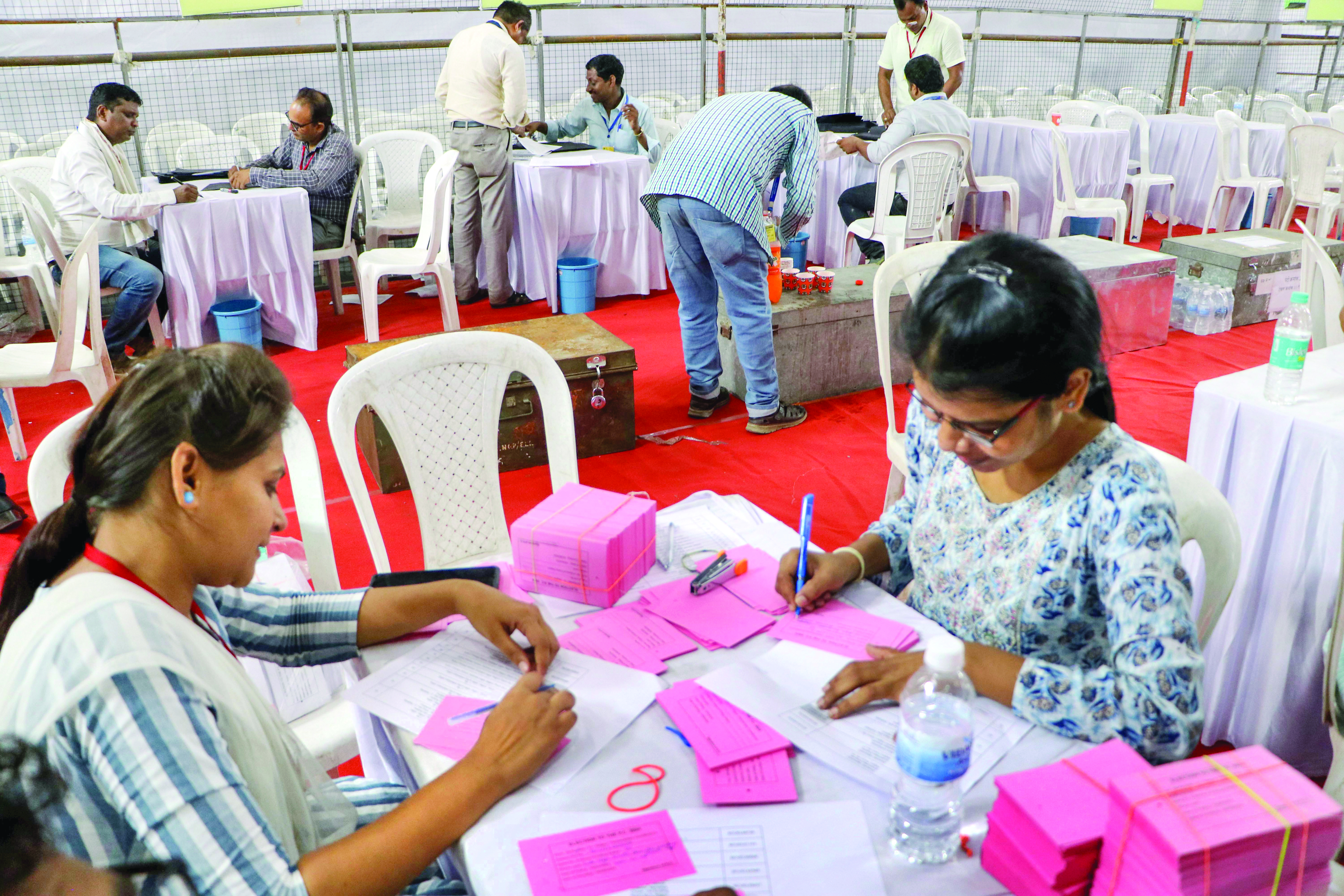All eyes on counting of votes today

NEW DELHI: With the seventh and final phase of voting concluding on June 1, all eyes are now on the counting of votes which begins on Tuesday in the multi-phase general elections to elect MPs for the 18th Lok Sabha.
The last phase covered 57 parliamentary seats across seven states, including the high-profile Varanasi seat in UP, where Prime Minister Narendra Modi is seeking a third straight term in the Lok Sabha. Almost all exit polls have predicted a comfortable majority for the BJP-led NDA combine, some even projecting around 400 seats for the NDA. Though in the past exit polls have been inaccurate in their projections and pollsters have varied by a wide range of seats in their projections. The results will be known after the counting of votes on Tuesday.
If exit poll predictions for the NDA hold true, PM Modi would match Jawaharlal Nehru’s record of leading his party to victory for a third consecutive term. On the other hand, the Opposition INDIA bloc is hoping to come up with a surprise. The Opposition’s stakes are higher still amid its reducing national footprint.
In the last Lok Sabha elections held in April-May 2019, the BJP-led NDA had won 353 seats and secured a poll percentage of 37.36 per cent as against 19.49 per cent of the Congress-led UPA which had managed to win 91 seats.
In the run-up to the counting, the campaign acrimony between the two rival camps has spilled over into the post-poll trading of accusations after the exit polls predicted a massive win for the incumbent alliance, a forecast summarily dismissed by Congress leader Rahul Gandhi as “Modi media poll”. INDIA bloc leaders, who have been raising doubts over the electronic voting machines (EVMs), have accused the prime minister of sending a signal to the bureaucracy through these “fantasy” exit polls and marched to the EC, urging the poll watchdog to follow the counting guidelines.
In its counter-attack, the Bharatiya Janata Party (BJP) has accused its rivals of trying to undermine the integrity of India’s electoral process and asked the EC to prevent any attempt of “violence and unrest” during the counting of votes.
The EC has dismissed the Opposition’s attack on its conduct of polls, with Chief Election Commissioner (CEC) Rajiv Kumar daring it on Monday to share evidence of attempts to influence the polling process.
The results will show if the Congress has it in its organisation and leadership to challenge the BJP amid its reducing footprint across the country since 2014. It has failed to get even the main Opposition party status in two consecutive Lok Sabha polls and has been reduced to a pale shadow of itself in a number of states, especially in the Hindi heartland.
Its leaders, including president Mallikarjun Kharge and principal campaigner Rahul Gandhi, have claimed that their alliance will get 295 seats in the 543-member Lok Sabha, marking an end of the Modi era.
Assembly polls were held in Odisha alongside the national election and the BJP and the BJD, which has been in power in the state since 2000 under Chief Minister Naveen Patnaik’s leadership, are locked in a fierce battle for power. Assembly polls were also held simultaneously in the YSRCP-ruled Andhra Pradesh.
Another key issue to watch keenly will be if the BJP will be able to emerge as a strong force in Tamil Nadu and the Left-ruled Kerala, two states where it has currently no seats but is predicted to win a few this time.
The verdict will also be out on a number of Union ministers, including senior ministers like Rajnath Singh and Amit Shah, and others like Piyush Goyal, Bhupender Yadav, Sarbananda Sonowal and Dharmendra Pradhan, all Rajya Sabha members asked by the BJP to contest the polls, and former chief ministers, such as the BJP’s Shivraj Singh Chouhan, Basavaraj Bommai, Trivendra Singh Rawat and the Congress’s Digvijay Singh and Bhupesh Baghel.



